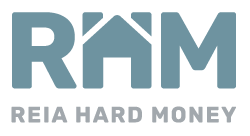Understanding Hard Money Loans: What You Need to Know
Unlike traditional loans that focus heavily on your credit history, hard money loans are all about the property itself.
Have you ever needed quick cash for a real estate deal, only to be frustrated by traditional banks' lengthy processes? If so, hard money loans might be the solution you're looking for. These unique financial tools offer a fast track to cash, especially for real estate investors, developers, and flippers. Let’s break down the essentials of hard money loans and see if they're the right fit for you.
What Is a Hard Money Loan?
At its core, a hard money loan is a short-term financing option secured by real estate. Unlike traditional loans that focus heavily on your credit history, hard money loans are all about the property itself. This means that if you have valuable real estate, you can access funds relatively quickly, sometimes in a matter of days.
How Do Hard Money Loans Work?
The appeal of hard money loans lies in their speed and simplicity. They are typically provided by private lenders, not banks, which allows for a more streamlined approval process. Lenders evaluate loans based on the property's value and potential for generating income rather than a borrower's financial status.
That said, this swift process comes at a cost. Interest rates on hard money loans tend to be higher than those of traditional mortgages. These higher rates reflect the increased risk lenders face and the urgency of the loans. Generally, loan terms are short, spanning from six months to a couple of years, making it crucial to have a clear repayment plan.
Who Uses Hard Money Loans?
Hard money loans are particularly popular among real estate investors, developers, and house flippers. The fast turnaround appeals to those who need cash to seize a promising deal quickly, especially in competitive markets. For flippers, the strategy is to buy, renovate, and sell a property rapidly, which can offset the high interest rates.
Moreover, hard money loans can serve as a lifeline for individuals with poor credit who have significant equity in an existing property. Sometimes, these loans can even help avert foreclosure by providing immediate funds.
The Pros and Cons of Hard Money Loans
Like any financial product, hard money loans have advantages and disadvantages.
Advantages:
- Speed: Approval processes are much quicker than working with a bank, getting you cash in hand when you need it most.
- Flexibility: Since the focus is on the property, approval standards can be more lenient than traditional lenders. This is particularly helpful for those with less-than-perfect credit.
Disadvantages:
- Higher Costs: The interest rates are often steep compared to conventional loans, which could add up quickly if the loan isn’t repaid promptly.
- Lower LTV Ratios: Loan-to-value ratios are typically lower—between 50% to 75%—meaning you'll need a significant down payment.
- Less Regulation: Hard money lending operates with less oversight, making it essential to choose trustworthy lenders carefully.
Is a Hard Money Loan Right for You?
Whether or not a hard money loan is a wise investment depends largely on how you plan to use the funds. They are ideal for seasoned real estate investors looking for quick capital without the red tape associated with traditional financing. However, it's crucial to have a solid strategy for repayment, as the high costs can become burdensome if you're not careful.
Final Thoughts
Navigating the world of hard money loans can be daunting, but understanding how they work is the first step toward making informed financial decisions. If you’re an investor ready to make a move, a hard money loan could be the key to unlocking new opportunities. Just make sure to weigh the pros and cons and choose your lender wisely.
Need more information or guidance? Reach out, and let’s discuss your questions!
Get your project
funded today!


